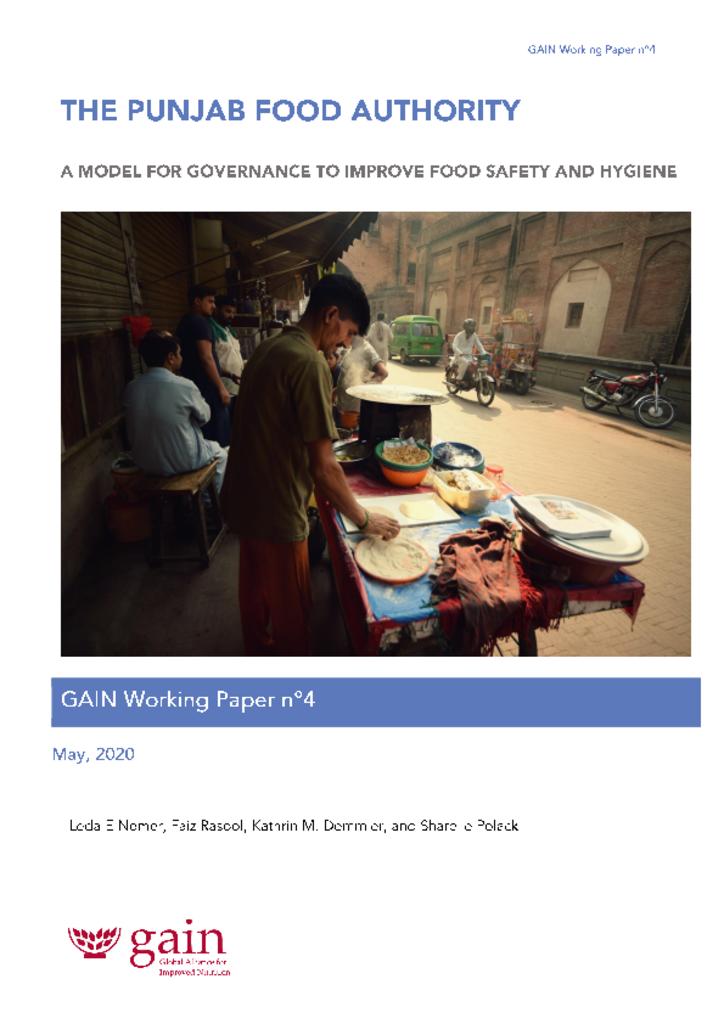Foodborne illnesses contribute to the burden of diseases worldwide. Ensuring food safety is therefore essential to fight malnutrition in all its forms. In Pakistan, the Punjab Food Authority (PFA) was established in 2011 with the responsibility for ensuring the safety and quality of all food items and products in the province through raising awareness and enforcing food hygiene and quality standards. This working paper focuses on the PFA model as a governance mechanism, showing how it is bringing multiple benefits to the food system and ultimately to consumers through improved food safety and nutrition. It is therefore a useful example of why urban governance for nutrition should be prioritised by governments to improve nutrition.
Since the PFA’s establishment, greater compliance with standards at inspections and higher rates of food businesses being licensed imply likely improvements in food safety. Food labelling and safety issues are openly communicated to the public. The PFA also works to encourage food businesses to choose fortified products and check fortification quality, thereby helping support improved nutrition. Enabling factors for the PFA include the devolution of authority from national to provincial levels and supporting legislation, including the PFA Act, which establishes the provincial food authority and sets the foundation for the PFA’s work. The existence of an independent scientific panel also ensures that all PFA outputs, including standards or messages to the public, are based on scientific evidence. The organisation has benefited from a solid and growing source of funding from the province, supplemented by improved licensing compliance by food businesses.
Finally, effective communication has played a key role in obtaining support from the PFA’s numerous stakeholders.
